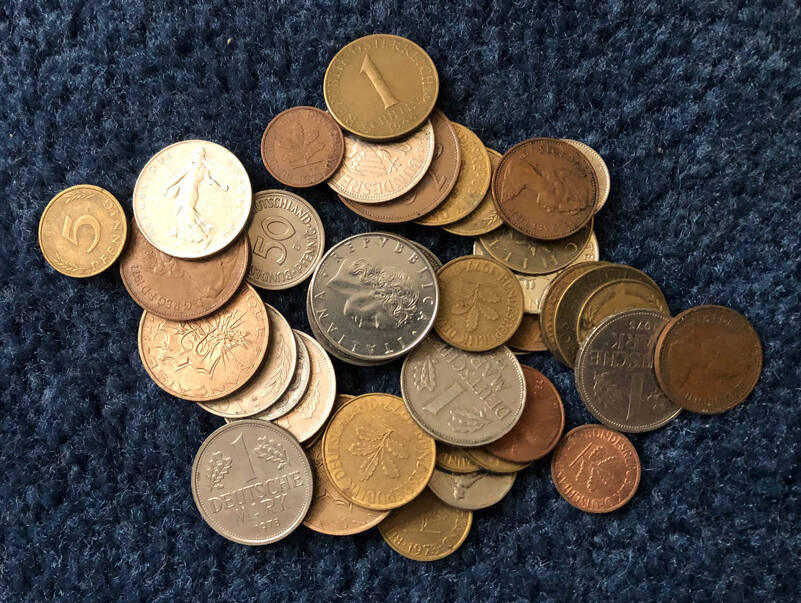By Morf Morford, Tacoma Daily Index
Many years ago I was doing odd jobs for an older woman in Tacoma’s North End. Over lunch one day, she made a simple observation; in America you have to work hard to end up poor.
To put it mildly, there are a lot of assumptions and presumptions, cultural, personal and ethnic, wrapped up in that short statement. To a large degree, I agree with it, but, as with any simple statement, there are a multitude of fine print disclaimers built into it.
Another time she told me that it is easy to get rich, or at least relatively wealthy, slowly.
In America, or presumably any stable economy, it is relatively easy to accumulate wealth. A healthy economy, like a healthy body or ecosystem, is always growing and expanding.
It is also easy, maybe even far easier, to accumulate debt. Debt, unlike an expensive home or new car, is rarely visible.
Many books and profiles explore “regular” people who somehow, by the end of their lives, accumulate far more wealth that it seems that they could have.
The authors of “Millionaire Next Door,” Thomas J. Stanley and William D. Danko, studied how individuals became rich, and their findings were surprising. They found that many people who live in expensive homes and drive luxury cars do not actually have much wealth – in fact they often have a massive amount of (not visible) debt. And many people who have a great deal of wealth do not live in upscale/desirable neighborhoods.
Those cases of regular people like barbers and teachers accumulating wealth are based on a simple principle – the gap between income and spending is the primary force-multiplier for those learning how to get rich. To put it at its most simple; you can’t build wealth if you spend all that you earn – or even worse, spend more than you earn.
One open secret about gaining wealth is to establish multiple income streams.
If, in almost any way, you can set up ways of getting your money and resources to work for you to complement your earned income, you have even more financial momentum moving you in a positive direction.
At its essence, accumulating wealth is a math problem – you need to add as much as possible and subtract as little as possible. You can, thanks to investments or interest rates, multiply your assets or, with catastrophes like bankruptcy or divorce, all-too-quickly divide one’s assets. But for most of us, on a daily basis, accumulating wealth is a basic matter of adding and subtracting.
Besides the math, there are other ways to define success
Like any goal perhaps, accumulating wealth, if you dedicate yourself to it, is relatively straightforward. We make sacrifices toward a larger goal and then we, at minimum, make progress toward that goal. And then we realize that what we have achieved isn’t what we were really looking for.
What most of us really want is to be valued and respected, acknowledged and valued for who we are. Most of us want freedom, stability and safety. And a sense of belonging. Wealth can move us toward those things – but it can also bring about stresses and threats few of us are prepared for.
Money is, of course, one measurement of value, but those things that money cannot buy, or even influence, for most, if not all of us, is of infinitely more value.
Money might not buy happiness, but poverty doesn’t buy anything
Some of us might have mixed feelings about wealth (would you really like to live the life of the richest people in world as portrayed in magazines and other media?) but not many of us have conflicted feelings about being poor. Having our finances dip into negative territory is never a good sign – it impacts our relationships, our moods, our attitudes toward others, our health and our ability to sleep at night.
This might be my bias, but I consider any individual homeless person an indictment of the larger society; what priorities has any given community put higher than the well-being and safety of so many of its own citizens? Does anyone deserve the contempt, neglect and outright hostility that our unhoused so often receive?
That so many currently fill our streets and public areas says far more about us than it does about them.
By a multitude of circumstances, too many of our fellow citizens have inverted the momentum of accumulated wealth. Debt, eviction and financial instability have, by a variety of means, become their norm – even their defining presence. Getting them into economic equilibrium should be our – and their – highest priority. Once stabilized, establishing roots and a new focus is relatively straightforward.
Success, after all, is not always measured by a dollar sign. Consider these benchmarks of success that are without cost and within reach of each one of us.






